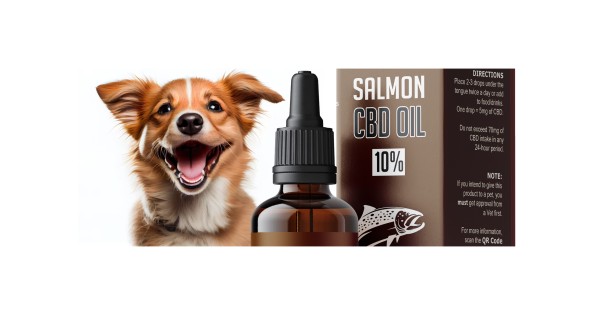In recent years, CBD (cannabidiol) has taken the wellness world by storm, not just for humans but also for our furry friends. Pet owners are increasingly turning to CBD products to help manage various health conditions in their pets, from anxiety and pain to seizures and inflammation. However, with so much information available, it can be overwhelming for pet owners to navigate the ins and outs of Pet CBD. In this comprehensive guide, we’ll explore what CBD is, how it works, its benefits, potential side effects, and considerations for choosing the right product for your pet.
What is CBD?
Understanding Cannabidiol
CBD is a non-psychoactive compound derived from the cannabis plant, primarily from hemp. Unlike THC (tetrahydrocannabinol), the psychoactive component of cannabis that produces a “high,” CBD does not induce any intoxicating effects. This makes it a safe option for pets, allowing them to enjoy the therapeutic benefits without the associated risks of getting high.
The Endocannabinoid System
To understand how CBD works, it’s essential to know about the endocannabinoid system (ECS). This complex cell-signaling system plays a crucial role in regulating various bodily functions, including mood, pain sensation, immune response, and homeostasis. Both humans and animals have ECS, which consists of endocannabinoids (naturally occurring compounds), receptors (CB1 and CB2), and enzymes.
CBD interacts with the ECS by binding to these receptors, particularly the CB2 receptors, which are primarily found in the immune system and peripheral nervous system. This interaction helps regulate inflammation, pain perception, and other physiological processes, contributing to the therapeutic effects of CBD.
Benefits of CBD for Pets
Reducing Anxiety and Stress
One of the most common reasons pet owners turn to CBD is to help manage anxiety and stress in their pets. Dogs and cats can experience anxiety due to various factors, including separation from their owners, loud noises (like thunderstorms or fireworks), and changes in their environment.
CBD has been shown to have calming effects by promoting relaxation and reducing anxiety levels. Many pet owners have reported that their pets become less anxious and more relaxed after taking CBD, making it an effective solution for anxiety-related issues.
Alleviating Pain and Inflammation
Chronic pain is a common issue, particularly in older pets. Conditions such as arthritis, hip dysplasia, and post-surgical pain can significantly impact your pet’s quality of life. CBD’s anti-inflammatory properties can help alleviate pain and improve mobility.
By interacting with the ECS, CBD can reduce inflammation and inhibit pain signals, providing relief to pets suffering from chronic pain. Many pet owners have noticed improved mobility and activity levels in their pets after introducing CBD into their routine.
Supporting Seizure Management
CBD has gained attention for its potential to help manage seizures in pets. Epilepsy can be a challenging condition for pet owners, and traditional anti-seizure medications can come with side effects and may not always be effective.
Studies suggest that CBD may help reduce the frequency and severity of seizures in dogs. By regulating neuronal excitability and inhibiting seizure activity, CBD offers a promising natural alternative for pets suffering from seizure disorders.
Improving Skin Health
Skin issues, including allergies, dermatitis, and dryness, are common among pets. CBD’s anti-inflammatory and antioxidant properties can promote skin health by reducing inflammation and irritation.
When applied topically or ingested, CBD can help alleviate itching, redness, and discomfort associated with skin conditions. Many pet owners have reported noticeable improvements in their pets’ skin health after using CBD products specifically designed for topical application.
Enhancing Overall Wellness
Beyond specific health issues, CBD can promote overall wellness in pets. It supports the ECS, which plays a crucial role in maintaining balance and homeostasis within the body. Regular use of CBD may enhance your pet’s mood, energy levels, and immune function, leading to a healthier and happier life.
Choosing the Right CBD Product for Your Pet
Types of CBD Products
Pet CBD products come in various forms, including:
- Oils and Tinctures: These are liquid formulations that can be administered directly or mixed into food. They allow for precise dosing and are quickly absorbed.
- Treats: CBD-infused treats are a convenient option for pets who enjoy snacks. However, they may take longer to take effect as they need to be digested.
- Capsules: These are pre-measured doses of CBD that can be given directly or hidden in food.
- Topicals: Creams and balms that can be applied directly to the skin to target specific areas of discomfort or irritation.
Understanding Dosage
Finding the right dosage is crucial for the effectiveness of CBD. Dosage may vary based on your pet’s size, weight, and specific health needs. It’s always best to start with a low dose and gradually increase it until you find the optimal level for your pet. Most CBD products come with dosing guidelines, but consulting with your veterinarian can provide personalized recommendations.
Quality Matters
Not all CBD products are created equal. When choosing a CBD product for your pet, look for:
- Third-Party Testing: Reputable brands should provide lab results to verify the potency and purity of their products.
- Organic Ingredients: Opt for products made from organic hemp to avoid pesticides and harmful chemicals.
- Full-Spectrum vs. Broad-Spectrum vs. Isolate: Full-spectrum products contain all the beneficial compounds of the hemp plant, including THC (within legal limits). Broad-spectrum products contain multiple cannabinoids but no THC, while isolates contain only CBD. Each type has its advantages, so consider your pet’s needs when selecting a product.
Potential Side Effects of CBD
While CBD is generally considered safe for pets, some may experience mild side effects, including:
- Drowsiness: Some pets may feel more relaxed or sleepy after taking CBD, especially at higher doses.
- Dry Mouth: CBD may reduce saliva production, leading to increased thirst in some pets.
- Gastrointestinal Issues: Occasionally, pets may experience digestive upset, such as diarrhea or vomiting.
If you notice any unusual behavior or side effects after introducing CBD to your pet’s routine, consult your veterinarian.
Legal Considerations
The legal status of CBD varies by region, so it’s essential to be aware of local regulations regarding its use in pets. In many places, CBD derived from hemp (containing less than 0.3% THC) is legal, but it’s always best to check with your local laws.
Consulting with Your Veterinarian
Before starting your pet on CBD, it’s advisable to consult with your veterinarian. They can provide valuable insights into whether CBD is suitable for your pet’s specific health conditions and help you determine the correct dosage and product type. Your vet can also monitor your pet’s progress and make any necessary adjustments.
Conclusion
Pet CBD is emerging as a promising natural remedy for various health issues in pets, offering a multitude of benefits ranging from anxiety relief to pain management. As pet owners increasingly seek alternative solutions for their furry friends, understanding CBD’s potential can empower them to make informed decisions about their pet’s health.
By choosing high-quality CBD products, following proper dosing guidelines, and working closely with a veterinarian, you can harness the therapeutic effects of CBD to improve your pet’s quality of life. As research continues to uncover the full range of benefits associated with CBD, it’s clear that this natural compound is here to stay in the world of pet wellness.





